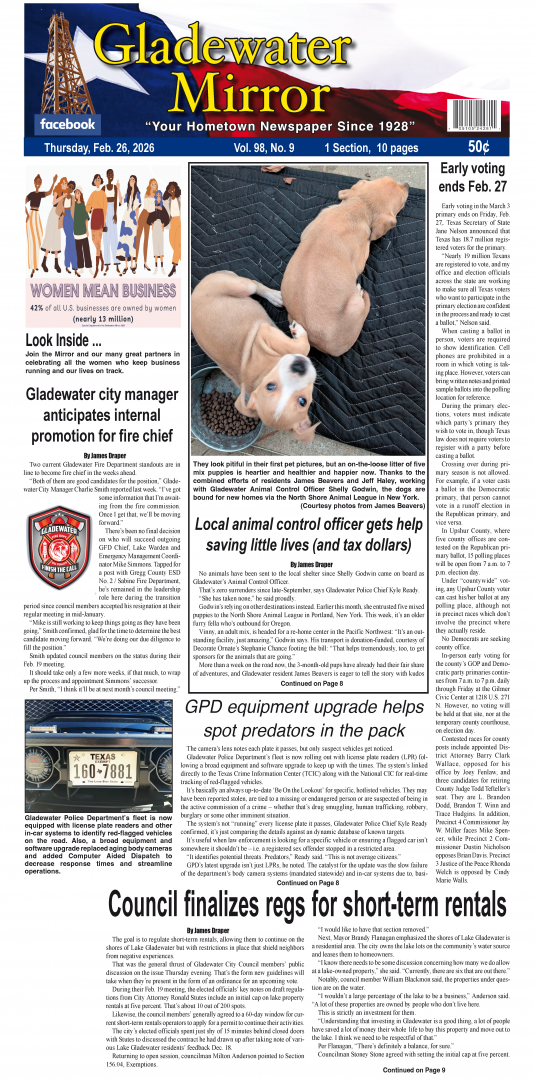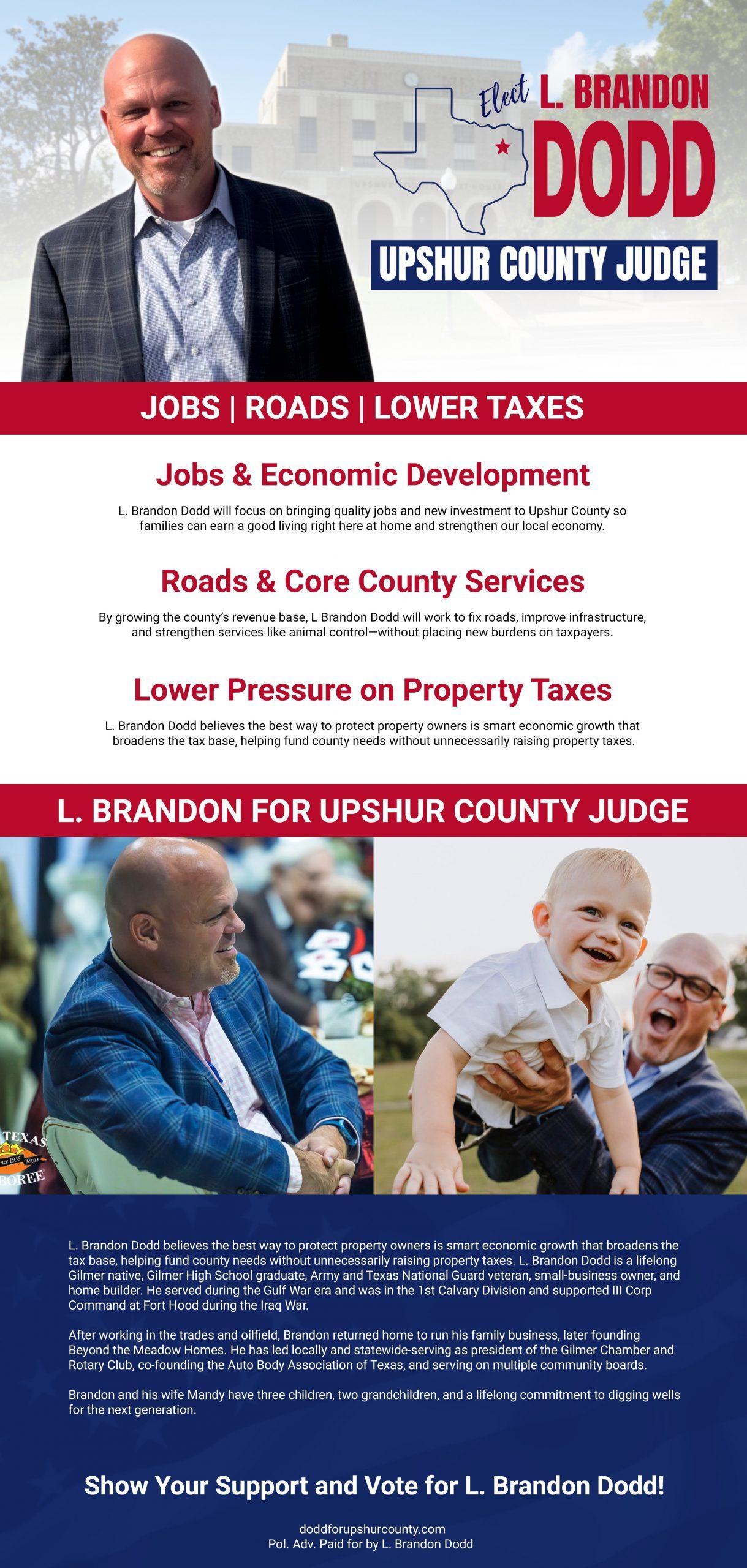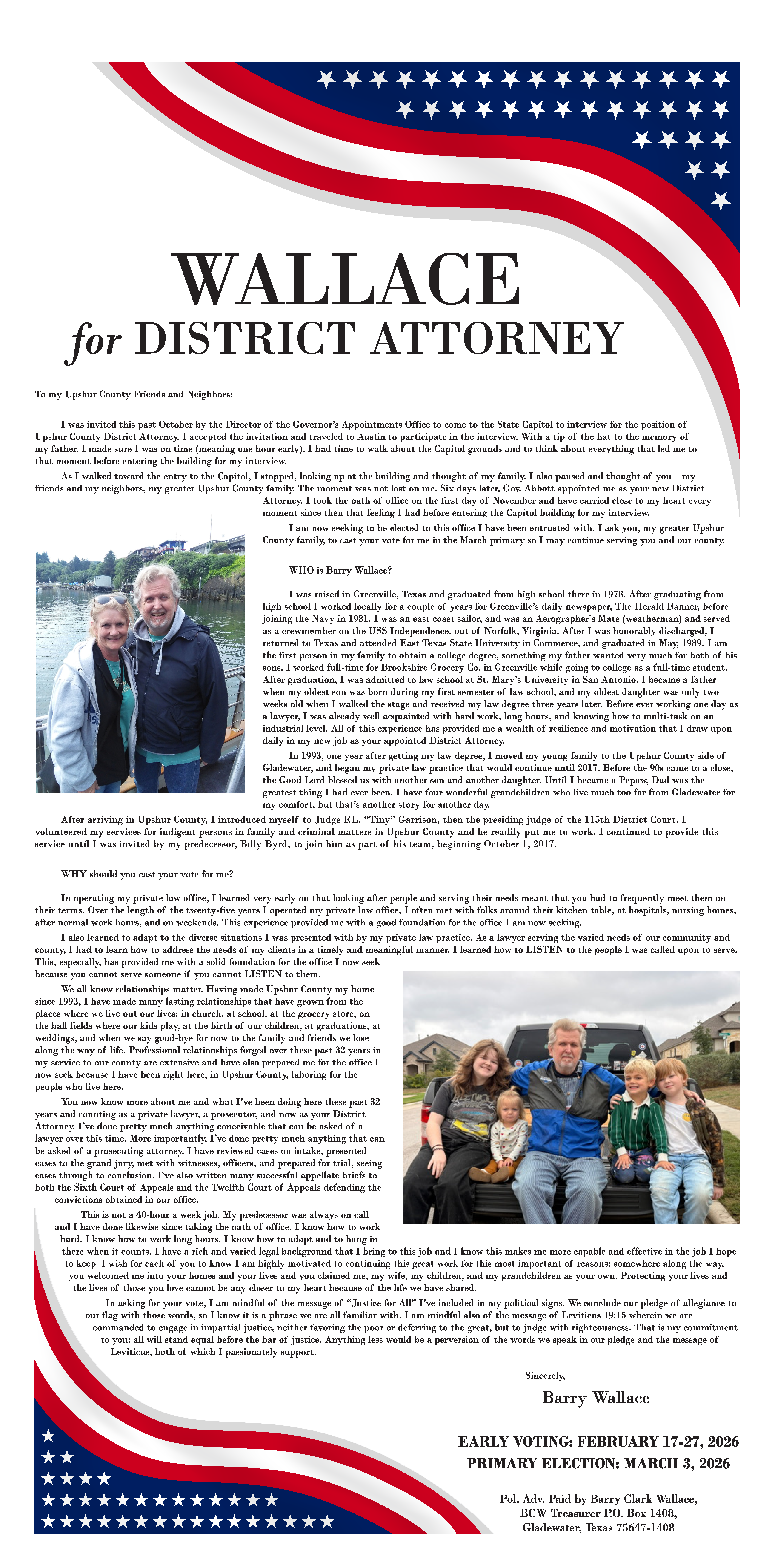After months of consideration, research, consultations with specialists and dialogue with residents, the City of White Oak is poised for a Thursday vote on new water rates.
City council members are scheduled for a 5 p.m. special meeting March 21 with one key agenda item: A water increase has been in the works since last year to get the rates at a point to both cover expenses and bank a bit for the future. However, officials’ hands were tied after an earlier 2023 increase, and discussions in recent weeks have helped them settle on a number.
“I know everyone’s been thinking about it,” White Oak City Coordinator Jimmy Purcell told the group March 12. “It’s not anything we want to do, but we have to. It’s just necessary for us to get past this, to move on.”
The breakdown of options for the anticipated increase has been available at cityofwhiteoak.com since before the council and community members heard a recommendation from water specialist Phillip Givens in February.
Putting it simply, Purcell said during the council’s regular meeting last week, the city’s lowest average utility bill right now is $65.03. If the council members want to adopt a rate that covers depreciation of its water system assets and shares water costs equally by usage, the new average bill would be $77.19 for a residence using about 3,000 gallons per month in addition to sewer.
A revised rate structure will continue to scale costs according to additional usage in thousands of gallons.
“We need to do something because we haven’t done anything for a while,” Mayor Kyle Kutch agreed.
Council member Kevin Hood concurred, but “If we do this, then we need to sit tight for a while. Best we can.”
“We’re hoping,” Purcell replied. “By doing what (Givens is) recommending, this puts us where we should be. Where we should have been. We should have been in this category years ago.”
The options before the council don’t include a base amount of water, bringing White Oak’s practices in line with a growing number of other communities across the country.
As city secretary and finance director Kristine Toon put it, “When you turn on your faucet, you’re paying for what we’ve treated. Then you’re paying for what you use. It is trying to be fair across the board. You’re paying your part.”
According to Hood, “The reality is we kept rates low for so, so long, and we were able to absorb costs. But now those costs are too much. Nobody’s thanking us for the 20 years” rates were lower than necessary.
“And,” Toon replied, “they’re really going to be upset if our infrastructure goes down, and we didn’t do anything to plan for it.”








